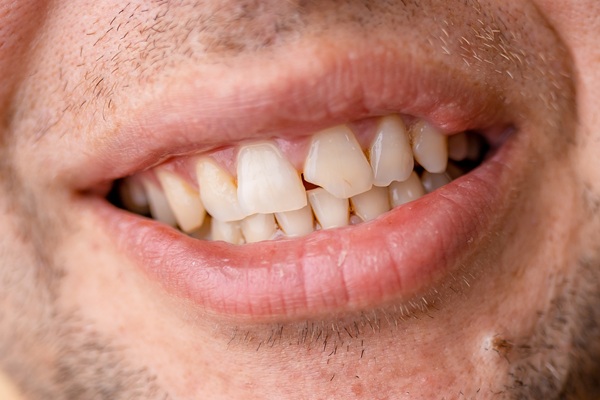 Whether you have a cracked, chipped, or decayed tooth, a dental crown can restore it to its original shape. With proper care, these restorations can last about 15 years. The good news is that caring for crowns is straightforward, with most patients not needing to change their oral hygiene routine.
Whether you have a cracked, chipped, or decayed tooth, a dental crown can restore it to its original shape. With proper care, these restorations can last about 15 years. The good news is that caring for crowns is straightforward, with most patients not needing to change their oral hygiene routine.
About dental crowns
Dental crowns are essentially caps that fit over a damaged tooth. They may contain various materials, such as pressed ceramic, porcelain, porcelain-fused-to-metal (PFM), and amalgam (metal alloy). Ceramic and porcelain crowns resemble natural teeth, while amalgam crowns are silver in color. Patients can request a tooth-colored crown or a more cost-effective amalgam crown. Each may restore:
- Weakened teeth
- Stained teeth
- Decayed teeth
- Root canal-treated teeth
- Cracked or chipped teeth
The dentist will place the crown in two separate appointments. During the first, they will clean up the problem tooth (such as by removing an infection) to prepare it for crown placement. The dentist will take an impression of the tooth to send to the lab, where technicians will create the crowns. The patient will need to return to have their permanent crown placed once it is ready. The average time between the first and second appointments is two to three weeks.
What to do in between appointments
The dentist will place a temporary dental crown while the dental lab constructs the permanent crown. Temporary crowns contain resin or acrylic, making them less durable. Therefore, exercising caution when flossing and brushing around the crown is important to avoid dislodging it. Forgoing extreme temperatures, including hot, cold, and overly sweet foods, can also help maintain a temporary crown. Do not chew tough, sticky, or hard foods with the temporary crown, as they could easily break it.
How to care for a permanent crown
A permanent crown is much sturdier than a temporary one, requiring fewer lifestyle changes. It is still recommended to avoid chewing hard or sticky foods with the crown. However, the only other care guideline from here is to practice good oral hygiene. Floss and brush regularly with fluoridated toothpaste, and visit the dentist twice yearly for a dental cleaning and checkup. During these appointments, the dentist will also examine the crown to ensure it is in good condition.
If the patient plays sports, they should wear a mouthguard during practice and games, as the crown could break from trauma. Patients who clench their jaws or grind their teeth (bruxism) at night should consider wearing a nightguard for extra protection. The excess force from these habits can break or wear away at the crown's surface.
Are you considering a dental crown?
To help your dental crown last its lifetime, roughly 10 to 15 years, make sure to take good care of it. This involves practicing good dental hygiene and avoiding foods and activities that could break it. Call our Lilburn office today to learn more about dental crowns and their aftercare.
Request an appointment or call Lilburn Family Dentistry at 770-800-0178 for an appointment in our Lilburn office.
Recent Posts
Dental crowns are restorations that can address a range of dental issues, from severely damaged teeth to protecting a tooth after a root canal. They help preserve oral health and enhance a smile's appearance. In addition to being versatile, they are available in different materials, which can be helpful for individuals who want options.Dental crowns…
Dental crowns are a popular dental restoration, effectively preserving and enhancing the function of damaged or weakened teeth. These custom-made caps are designed to fit over the existing tooth, providing both structural support and improvements in your smile's appearance. However, not all dental crowns are created equal. The type of dental crown you choose can…
Your dentist can help determine if you need dental crowns. There are many reasons for getting these restorations. The main goal is always to restore the tooth and enhance its functions. Here are the signs you may need dental crowns soon.Losing at least one tooth can cause more dental problems. It can lead to dental…


